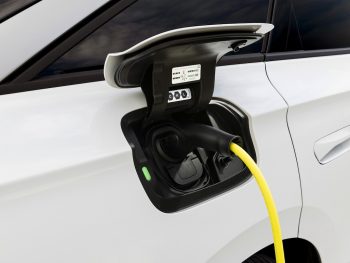New rules set standards on reliability and payments for public rapid charge points
The Government has laid out its Public Charge Point Regulations in Parliament, paving the way for new requirements that will improve the public rapid charging experience for current and future EV drivers.

The rules will mandate 99% reliability across public rapid charging networks
The Public Charge Point Regulations 2023, currently in draft form, will improve the consumer experience in four key areas: payments, pricing, data and reliability.
The requirements on reliability are expected to be particularly beneficial to EV drivers, mandating that rapid chargers networks must be, on average, reliable for 99% of the time during each calendar year, with operators required to submit annual reports. The target was first revealed in the Electric Vehicle Infrastructure Strategy that was announced in March 2022 and will tackle the patchy reliability of the UK’s rapid charging network, bringing added confidence to drivers.
Charge point operators will also have to provide customer helplines 24/7 while the rules also stipulate that users at all public charge points with 8kW or higher must be able to pay by contactless payment and be able to use third-party roaming services.
Pricing requirements will mandate that costs are clearly displayed in pence per kilowatt hour, either on the charge point or through a separate device that doesn’t require a pre-existing contract with the operator.
Charge point operators will also have to ensure that reference data and availability data is made available to the public free of charge, ensuring third-party apps can be kept up to date.
However, operators will have up to a year to make the changes, once the legislation is enacted, and two years in the case of the requirement on payment roaming.
Many EV stakeholders have been calling for such changes for a long time – and the proposed legislation has been warmly welcomed.
Melanie Shufflebotham, co-founder & COO at Zapmap, said: “From easy payment through to chargers you know will work when you get to them, these are issues which have been highlighted for many years.
“Whether it’s showing the live status of charge points, if they are in use, in service or otherwise, or whether it’s our cross-network payment solution Zap-Pay, Zapmap has led the way in identifying and addressing the needs of EV drivers.
“It’s great to see these concerns now being addressed by Parliament, which will lead to more collaboration across the industry.”
Edmund King, AA president, said: “This is a welcome step and are pleased that the Government has listened to our requests to create more confidence when charging away from home.
“A 99% reliability requirement and live charge point information will help show drivers in real-time the benefits of driving electric.
“For three years we have helped several charge point providers with our EV Support Service. By providing 24-hour telephone assistance for drivers at a charge point, we can help get them back on the road again.”
The RAC also welcomed the Government’s acknowledgement of a clear need to improve drivers’ experience at public chargers.
Electric vehicles spokesman Simon Williams remarked: “This has the potential to reassure many more people that switching to an electric vehicle makes sense, which is vital the closer we get to 2030 when the sale of new petrol and diesel cars will end. Ensuring drivers only need to download and use a single app is a huge step forward from where we are today.
“We hope operators of rapid and ultra-rapid charging hubs will not just clearly display pence per kilowatt hour prices on chargers themselves but also on prominent digital signage similar to fuel price ‘totems’ which drivers are already very familiar with. We believe this is needed to make price comparisons easy for everyday EV drivers looking to charge up as cheaply as possible on a journey.”
Meanwhile, consumer watchdog Which called for the requirements to come into effect sooner.
Sue Davies, head of consumer protection policy, commented: “Our research found shortcomings with the public EV charging infrastructure, with many drivers reporting that they have struggled to navigate inconvenient payment systems or find a charge point in working order, so these new regulations are an important step.
“Charge point operators should look to implement these changes more quickly though so that consumers can benefit from them as quickly as possible, and industry should look to go beyond the requirements and provide contactless payments at all charge points wherever possible.
“Ultimately, consumers will judge the success of these regulations by whether they see tangible improvements to the public charging infrastructure. Charging must be easy, reliable and seamless to support people making the move to an electric car.”

